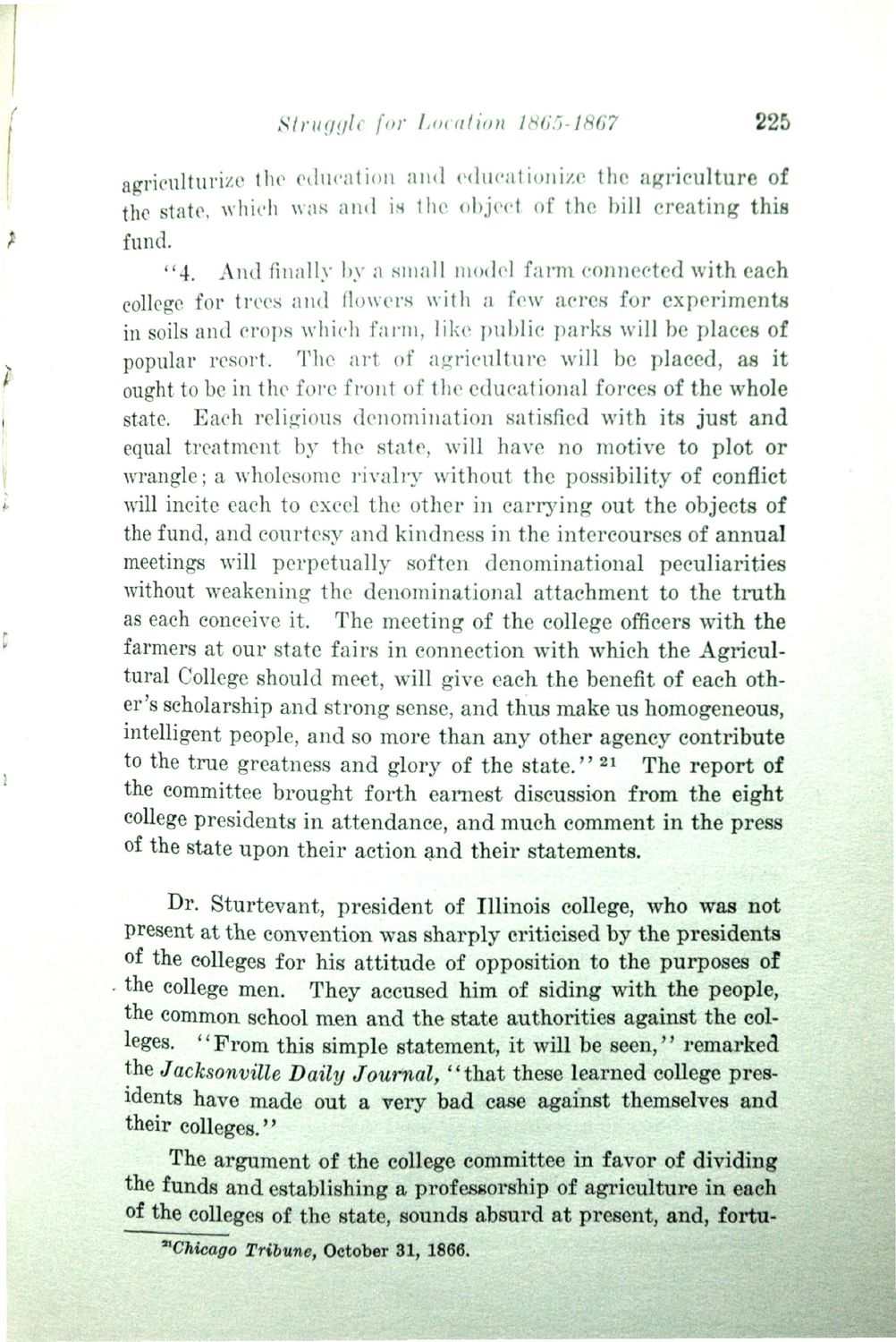| |
| |
Caption: Book - History of the University (Powell)
This is a reduced-resolution page image for fast online browsing.

EXTRACTED TEXT FROM PAGE:
Struggle for Location 1865-1867 225 agriculturize the education and educationize the agriculture of the state, which was and is the object of the bill creating this fund. "4. And finally by a small model farm connected with each college for trees and flowers with a few acres for experiments in soils and crops which farm, like public parks will be places of popular resort. The art of agriculture will be placed, as it ought to be in the fore front of the educational forces of the whole state. Each religious denomination satisfied with its just and equal treatment by the state, will have no motive to plot or wrangle; a wholesome rivalry without the possibility of conflict will incite each to excel the other in carrying out the objects of the fund, and courtesy and kindness in the intercourses of annual meetings will perpetually soften denominational peculiarities without weakening the denominational attachment to the truth as each conceive it. The meeting of the college officers with the farmers at our state fairs in connection with which the Agricultural College should meet, will give each the benefit of each other's scholarship and strong sense, and thus make us homogeneous, intelligent people, and so more than any other agency contribute to the true greatness and glory of the state.'' 21 The report of the committee brought forth earnest discussion from the eight college presidents in attendance, and much comment in the press of the state upon their action and their statements. Dr. Sturtevant, president of Illinois college, who was not present at the convention was sharply criticised by the presidents of the colleges for his attitude of opposition to the purposes of the college men. They accused him of siding with the people, the common school men and the state authorities against the colleges. "From this simple statement, it will be seen," remarked the Jacksonville Daily Journal, "that these learned college presidents have made out a very bad case against themselves and their colleges/' The argument of the college committee in favor of dividing the funds and establishing a professorship of agriculture in each of the colleges of the state, sounds absurd at present, and, fortuK Chicago Tribune, October 81, 1866.
| |